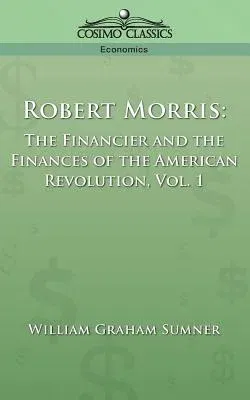Robert Morris' tombstone states that he was "The Financier"; officially,
however, he was Superintendent of Finance. Whatever his title, Robert
Morris played an integral role in financing the American Revolution, and
Yale Professor William G. Sumner examines Morris' life and actions to
enhance our understanding of the finances of the young nation. In Volume
I of a two-volume work, Sumner looks at the early life of Morris and his
first years in public service through 1781. Born in Philadelphia, Morris
was forty-one at the time of the Revolution and one of the wealthiest
merchants in the colonies. Sumner notes, "His career as a public man
then began. He took part in all the great enterprises of the United
States which were not military, and he was not without influence on
those." He had to organize the treasury and somehow make sure that
soldiers were paid, the army was provided for, and creditors were
appeased. The volume ends with the events of 1781, with Morris appointed
the Financier during a tense era in our nation's history. WILLIAM GRAHAM
SUMNER was a professor of political and social science at Yale
University and became known as a Social Darwinist and advocate of the
laissez faire principle in economics. Besides writing a number of books
on sociology, history, and economics, he was also influential in the
movement to modernize the American university system.


